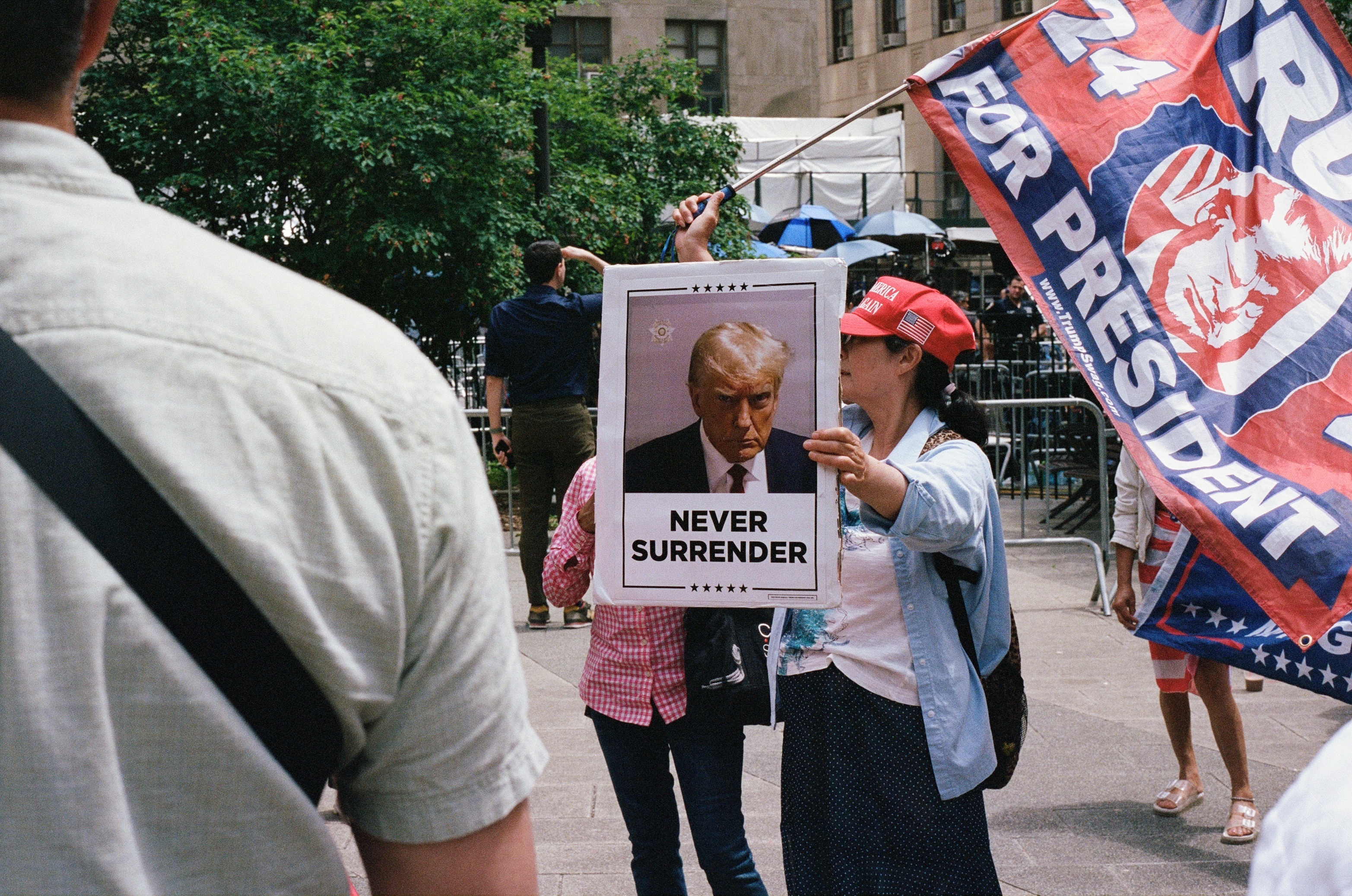What Reinhold Niebuhr Can Tell Us About Donald Trump
Sinclair Lewis and Elia Kazan have had their Nostradamus moments this year, Lewis for the 1935 novel It Can’t Happen Here (“predicted the rise of Donald Trump”—The Guardian) and Kazan for the 1957 film A Face in the Crowd (“foretold the rise of Donald Trump”—
Published by The Lawfare Institute
in Cooperation With

Sinclair Lewis and Elia Kazan have had their Nostradamus moments this year, Lewis for the 1935 novel It Can’t Happen Here (“predicted the rise of Donald Trump”—The Guardian) and Kazan for the 1957 film A Face in the Crowd (“foretold the rise of Donald Trump”—Washington Post). Now it’s time to shine the spotlight on Reinhold Niebuhr—not because he envisioned a Trump, but because he envisioned the forces that can make a Trump possible. For Niebuhr, however, it wasn’t fiction.
A Christian philosopher who taught at Union Theological Seminary, Niebuhr inspired cult-like reverence among mid-century intellectuals. Hans J. Morgenthau called him the nation’s greatest living political philosopher, and Alan Heimert said he was one of the last two indisputable public intellectuals in the United States (Walter Lippmann was the other). Forty-five years after his death, Niebuhr still has numberless admirers, President Obama among them.
In his writings, Niebuhr is often pessimistic and sometimes defeatist. In the American Scholar in 1937, he verges on the alarmist. A “disaster in modern civilization,” he writes, is “not at all unlikely.” The cause? As he titles the article: “Pawns for Fascism—Our Lower Middle Class.” (Reinhold Niebuhr, “Pawns for Fascism—Our Lower Middle Class,” American Scholar, June 1937, 145-152.)
Niebuhr has in mind “the good little people, so touching in their personal rectitude and individual discipline, who serve us in the shops, who till our soil and who perform all functions in our social mechanism with the exception of industrial labor.” Their personal rectitude, unfortunately, is accompanied by a level of “political ineptitude” that “exceeds all classes.”
These voters embrace individualism and fear collectivism, according to Niebuhr. Wrongheadedly, they believe that the Right will best safeguard their modest property and promote their economic interests. “They imagine the libertarianism of owners is identical with their own,” he writes, “and fail to recognize the gulf between property as social power and property as minimal social security.”
In the United States and elsewhere, says Niebuhr, these voters now find themselves grappling with unprecedented social insecurity, which stems from global interdependence, the contraction of the economy, “the complexities of a technical civilization,” and “the perplexities of a period of change.” They’re anxious. They feel cheated. They’re “ignorant of the cause of, and confused about the ways of escape from, the social difficulties.” They seethe with “a profound resentment, which is the more bitter for its failure to articulate itself clearly.”
Ordinarily, the anger would dissipate unnoticed. Among these voters, Niebuhr observes, “individual resourcefulness is preferred to common action.” But a shrewd demagogue may catalyze a mass movement by preying on their social anxiety, playing to their anti-collectivism, and directing their resentment toward scapegoats. “One may well wait with bated breath for the moment when an artful demagogue will provide an inevitable articulation for the racial resentments of our petty bourgeois life,” Niebuhr writes. In addition, “[n]ational as distinct from racial prejudice is an equally strong force,” with patriotic fervor supplying a “symbol of social solidarity in an individualistic existence.” Make America Great Again.
“The old conservatism and the new spirit of rebellion in middle class life naturally lead to an ambiguous political program,” notes Niebuhr. A demagogic leader may take supporters in unforeseen and unwanted directions. Ironically (Niebuhr loved irony; later he titled a book The Irony of American History), these fierce individualists may usher in a regime that smothers individualism.
He acknowledges that “[i]t is too early to prophesy, and much too early to write, the tragic social history of our era.” In the United States, national wealth and what he elsewhere terms FDR’s “amiable opportunism” may provide salvation. But if a major economic downtown occurs, he warns, the spirit of lower middle class grievance will “undoubtedly express itself in fascistic or semi-fascistic terms…. It may well become the decisive factor in our political life.”
Niebuhr’s class divisions don’t fully track ours. For instance, he includes white-collar workers in the lower middle class. In addition, he says nothing about education as a political factor, nothing about women voters, and nothing about minorities except as victims of bigotry. The global perils of 2016 pale next to those of 1937, further, and even for 1937, the American Scholar article may be overdrawn.
Still, it’s hard not to see parallels this year: the unease and anger in the white working-class, the scapegoating of Mexicans and Muslims, the belligerent nationalism, the easy answers. Whichever candidate wins the election, these voters aren’t going to vanish. They may become, in Niebuhr’s words, “the chief source of confusion in an age of confusion.”



